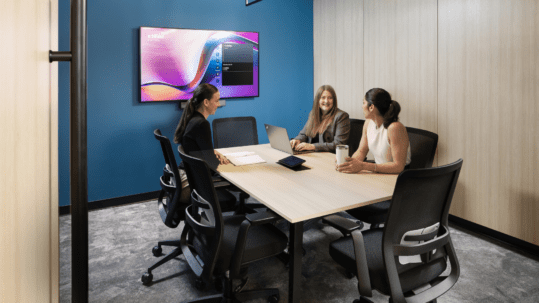The workforce landscape has fundamentally changed, and people are beginning to rethink their relationship with the workplace, as well as their employee expectations. Employees are re-evaluating their employment priorities, values, and tolerance for working in places where they no longer feel fulfilled. As the Great Resignation hits Canada, many Canadians are taking chances on new career opportunities, with a quarter (24%) of Canadian workers recently changing jobs. The pressure is now on employers to respond to these expectations to stay relevant and competitive amid a tight labor market.
Read on to learn more about changing workplace expectations, why it is valuable, and how companies can adapt.
Work is changing, and so are employees’ expectations
Research suggests a shift in priorities and expectations are long underway. According to research from Benefex, 77% of workers expect more from their employers now than when pandemic began, with eight in ten saying their employee experience at work is more important than last year. Although the pandemic has contributed to rapid shifts in employee expectations, there are also several different other factors influencing these shifting expectations.
Due to changing demographics and the presence of millennials and Generation Z, new expectations for compressed work weeks and flexible working models have emerged. At the same time, the number of people over 70 years old in the labor force has more than doubled in the last decade, developing unique expectations that have never been considered before. Furthermore, these factors, combined with the pandemic, have altered employee expectations, emphasizing the need for pragmatic and aesthetic workplace changes.
Why this is important
Employees now have a higher tendency to leave a job that does not satisfy or appease their needs and expectations. In the past, employees stayed at a company for an average of ten years, but that has now dropped to around two years. As workers realize that they have the upper hand, they are not only expecting new benefits and amenities—often, but also demanding them. Therefore, keeping up with the evolving employee expectations ensures that individuals are still engaged in their role and committed to your company’s greater mission. Studies have shown that businesses with engaged workers have 23% higher profit compared with business units with miserable workers. Additionally, teams with thriving workers see significantly lower absenteeism, turnover and workplace accidents.
How can companies adapt
How can your organization best respond to these shifting employee expectations? Here are three ways for your company to adapt to the changing workplace expectations.
-
Varying working environments:
Providing different working configurations gives employees more flexibility in deciding how they work best to complete their tasks more effectively. Quiet working spaces, collaborative workstations, casual conversation zones, and bookable meeting pods are great options.
-
Focus on company culture:
Culture still plays a significant role in job satisfaction and is a major factor in talent retention. As a result, employers must go to great lengths to support a positive company culture. Organizing team days or monthly meetings to bring employees together can boost morale and build a unique company culture.
-
Health and wellness are vital:
Professionals place a high priority on their health and well-being. As a byproduct, employers must be able to support their employees in all aspects of their lives, including their physical and mental well-being. Employers can integrate a wellness room or fitness center into the workplace so that employees can de-stress and focus on their health during the workday.
Only one thing is clear: this new way of thinking about the workplace will stay with us. This new normal will evolve further, and those who do not acclimate will put themselves in danger. Overlooking these new expectations increases the risk of increased absenteeism, low productivity, and high turnover rates. On the other hand, those who engage their employees and adapt to new realities stand to benefit significantly. Employees are your most valuable asset, so listen to them and actively work to meet and exceed their expectations.






